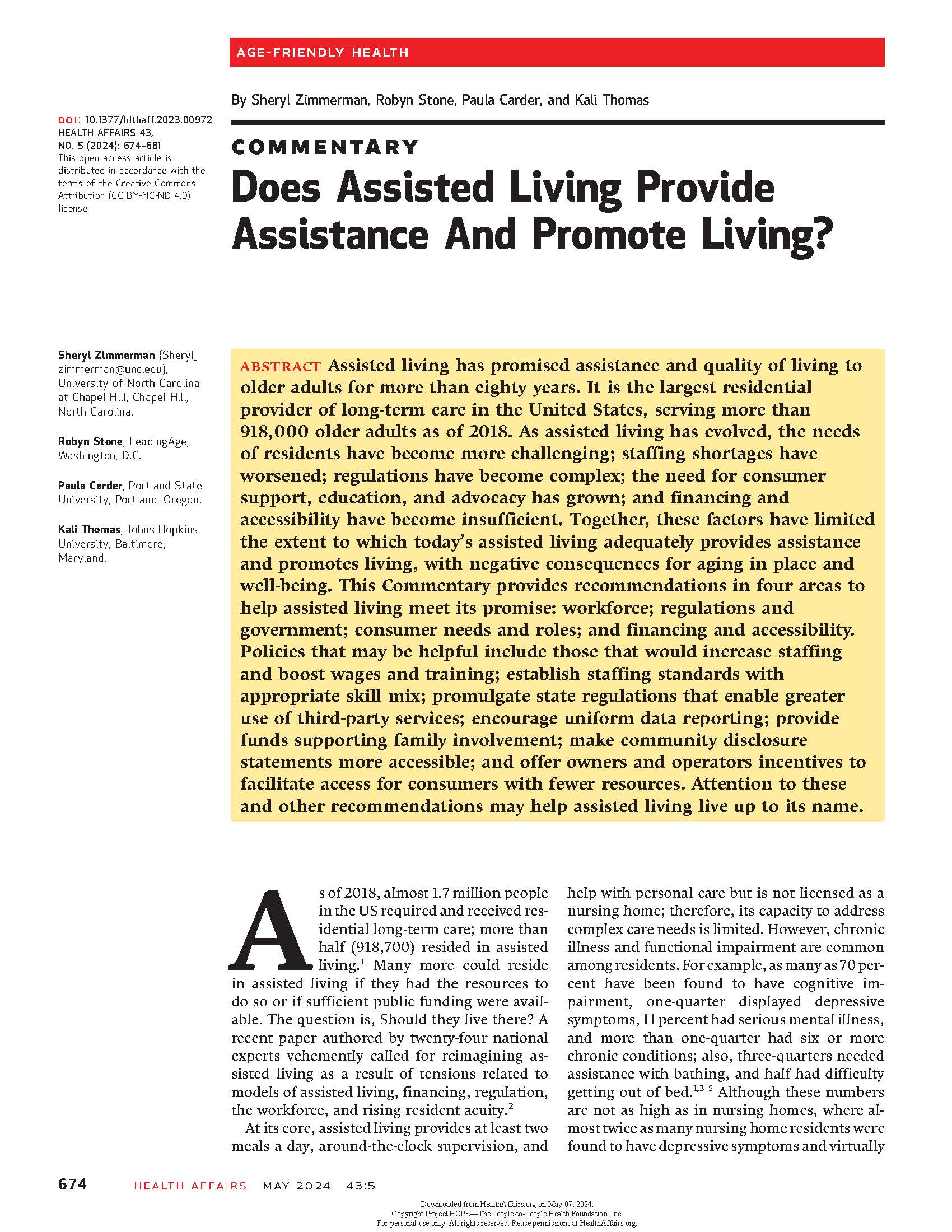The purpose of this study was to investigate responses to death at multiple levels within the assisted living (AL) system and to characterize the psychosocial impact of death on surviving residents. This study used secondary thematic analysis of multiple data sources collected as part of a larger quantitative-focused study with 21 ALs. Data sources included: (a) community documents, e.g., newsletters; (b) descriptive and reflective observational field notes; and (c) memos and key statements from interviews with residents (n = 18). Three themes emerged from the data: administrative memorialization practices, resident perceptions of staff communication related to death, and resident psychosocial responses to death. Surviving residents reported using both adaptive and avoidant strategies to cope with psychological responses to death; noting that grief responses extended to the loss of the deceased resident’s family, friends, and pets. Residents also perceived staff-resident communication and community memorialization practices as incongruent with a “family-like” social climate. Findings highlight the potential utility of a multi-level approach to improving psychosocial aspects of end-of-life care and grief management by targeting AL administration, workforce, and individuals. Social workers are well-positioned to lead these types of psychosocial interventions but must contend with staffing barriers limiting clinical roles in AL.

Center for Excellence in Assisted Living CEAL@UNC
Advancing the well-being of the people who live and work in assisted living through research, practice, and policy.

